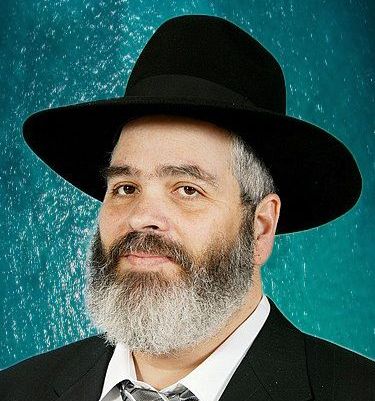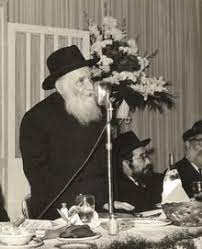  |
|
| |||||
This Google Custom Search looks only in this website. The Outgoing Government is Trying to Foment Rebellion
A government has not yet been established in Israel and it seems that the left side of the political map has not yet internalized the election results. Over one million voters went to the polls merely a month ago and tipped the scales very noticeably in favor of a new government headed by Binyamin Netanyahu. The relevant parties making up the erstwhile coalition government have shared like views on issues stated by its leaders, clearly expressed on every political platform regarding state and religion. No one hid anything from the public that went to the polls and chose what they did, being well informed.
The shock that gripped the heads of the Left upon seeing the election results and realizing their import, changed lately into rabid incitement to the extreme of calling upon a civil rebellion against the new government. Even though this may not jibe with the legal definition of an insurgence, it is still definitely an uprising. Such vehement cries have not been heard in the political history of the State but a revolt, it definitely is. It is not difficult to surmise what the media et al could have reacted if this had been a response from the opposite side of the political map.
Every year, the Central Bureau of Statistics releases a report on public volunteering in Israel — including how it is relevant to the chareidi sector. Their social study reveals that of the whole body of volunteers within the Jewish population in Israel, a quarter of the citizenship was indeed involved.
An analysis shows that among Jews, the highest percent of them came from the chareidi sector at a high 40%, among the religious the number was 32%, the traditional sector ran to 18% and the general secular population had a figure of 25%.
A special feeling permeated this year's Agudah Convention. The Agudah Convention has traditionally been the place where Klal Yisroel gathers to discuss the issues of the day, interact with and hear from the Gedolei Yisroel, and find opportunities to be stronger as a united tzibbur. With representatives from all of Klal Yisroel's many groups, the many attendees gathered with a true "agudah" - bound together in a common cause of increasing kvod Shomayim.
But if there was one theme that was stressed during the Agudah Convention this year, it was speaking up by learning Torah. "Learning Torah is what brings us closest to Hashem," said Rabbi Moshe Hillel Hirsch, Rosh Yeshiva of Yeshivas Slobodke, Bnei Brak, and Chaver Moetzes Gedolei HaTorah of Degel HaTorah, at Motzei Shabbos's keynote session of the Agudah Convention. "Never say you don't have the strength!" This theme was echoed by, among others, Chaver Moetzes Gedolei HaTorah Rabbi Yeruchim Olshin, Rosh Hayeshiva of Beth Medrash Govoha, who explained that specifically in the context of mesorah, learning Torah is what keeps the chain of mesorah strong.
There will probably be some who will not be happy with this article but stating an opinion is surely legitimate.
Naftali Bennett, whose tenure as Prime Minister is regarded as a dire misfortune, is an unemployed citizen today, laid off, and apparently, requests for speeches from abroad are not jamming his mailbox, which is why he is looking for something to fill his days after a stimulating year of tours and visits throughout the globe as prime minister of Israel. Bennett has decided to make a reckoning with all those, who during his term, badmouthed him. He has hired the services of a law firm — and he has enough money to afford it — to dig amongst the "social media" (a sorry epithet for the communication media whose "social activities" are as distant from the public welfare as is east from west) to dig up those who defamed him in the course of his tenure. A lawyer thus hired surely knows that this does not include criticism, no matter how correct and incisive, so long as it is within the limits of free speech.
Rather, this applies to gross defamatory lies against him. For example, publicized "information" on those media channels affirming that his mother was not Jewish, or conversely, that he renovated his home from public funds and more of the same.
This extended appreciation of HaRav Aharon Kotler zt"l was first published in 1992 in the print edition. We are republishing it now for the 60th yahrtzeit, and also to make it available on the web.
Part 3
In this third part of our series, we come to Lakewood Yeshiva, the institution through which Reb Aharon wrought a virtual revolution in the American Jewish public's appreciation of the importance of Torah study, and in the status of those who devote themselves to Torah learning.
Again and again, Reb Aharon spoke about how the lomdei Torah are the heart of the nation, from whence sustenance flows to the rest of the body. Even those who have strayed far from Torah nonetheless rely for whatever spiritual existence they have on the centers of Torah learning.
While the community certainly needs trained rabbis, shochtim and teachers, Reb Aharon explained that they were not enough to ensure the survival of American Jewry or any other group of world Jewry. Neither did the answer lie in building magnificent synagogues or multimillion dollar charitable institutions. Tefillah and gemilus chassadim are, by themselves, unable to serve as a foundation for the development of future generations without the third pillar of Torah study.
Of all the dangers which face us, said Reb Aharon, shic'chas haTorah, the abandonment of Torah, is the gravest, for it paves the way to all other misfortunes. The Jewish nation's existence is guaranteed only by strong centers of learning, where Torah is learned lishmoh: in other words, with no other purpose than excellence in Torah.
The novelty was not in the message. Reb Aharon himself applied the observation of Mesillas Yeshorim that the most straightforward and universally accepted truths are also the most ignored. The job at hand was to muster the support to make the message a reality.
* * *
Outstanding Articles From Our Archives
Opinion & Comment
by Maran HaRav Meir Chodosh, zt'l
"R' Yaakov bar Idi pointed out a contradiction between two pesukim: One posuk reads, `And behold I am with you and will guard you wherever you go' (Bereishis 28:15), but another posuk says, `Then Yaakov was greatly afraid and was distressed' (Bereishis 32:8). [R' Yaakov] answered: `[He was only afraid because he thought,] Perhaps [his] sins would cause [his undoing]' (Brochos 4a).
Rashi explains that Yaakov feared, even after Hashem's promise, that perhaps he had sinned and therefore the Divine promise would not be fulfilled.
This must be understood. Did Yaakov not hear that Hashem explicitly assured his protection? Why should he be afraid? We see, however, that sin has the power even to rescind Divine commitments. That was Yaakov's great fear.
"I have dwelled with Lovon" (Bereishis 32:4) - "and have fulfilled the 613 mitzvos" (Rashi, ibid.). Yaakov is conscious of his superior cochos hanefesh. When he was in Lovon's house not only did he not learn from his wickedness, but he even elevated himself daily to loftier spiritual levels. In Lovon's house he was privileged to give birth to the shevotim - the tribes of Israel.
Yet as significant as this was, it was nonetheless inadequate to assure him that he was free from Divine criticism afterward. "Who can comprehend errors?" (Tehillim 19:13). After leaving Lovon's house he was concerned that perhaps according to his level he had not perfected himself sufficiently - "Who can be justified before You when judged?" (see Tehillim 143:2, Musaf Rosh Hashonoh). Even when an explicit prophecy and promise have been given, their fulfillment is still dependent upon Heavenly considerations. Sin can tip the scale. Even a person as righteous as Yaakov must fear that perhaps he has become sullied by sin.
What must a person do? Is he helpless? No! The answer is tefilloh. Yaakov pleaded to Hashem, "The Elokim of my father Avrohom, and the Elokim of my father Yitzchok . . . deliver me" (Bereishis 32:10,12). Despite Yaakov's excessive fear, and although it was a time of judgment when the attribute of strict judgment dominates, tefilloh can tip the balance once again.
by HaRav Menachem Dan Meiseles
Part II
In the first part, HaRav Meiseles first noted that one of the Greek decrees at the time of Chanukah was that the Jews had to carve on his ox's horn that he has no part in Hashem the Elokim of Yisroel and afterwards plow with that ox. He also catalogued the differences between an ox and a donkey, noting that the ox symbolizes high spiritual levels while the donkey symbolizes matter: chomer. Also the ox is kosher while the donkey is not. Iyov argued that just as the ox and the donkey did nothing to deserve being kosher and not, respectively, and were merely created as they were, so it is with people: some are created evil and some good. There is no basis for reward or punishment.
Greek wisdom is purely natural science. They maintained that all that is in the world is what can be experienced with the senses, and there is nothing in the Creation dependent upon a free will. Since their whole knowledge base was empirical, they could not know what lies below the surface. The true "inner" wisdom is the Divine Power in the Creation, a Power that is hidden from, and higher than, our powers of perception, and is thus not accessible to them.
*
The Cheit Ha'eigel Disproves the Level of the Shor and of Yisroel
The difference between light and darkness is a clear physical difference, and even more so is the difference between the holy and the mundane, between the tomei and the tahor. Someone who does not understand this difference is lacking basic understanding - daas. This lack results in his wisdom being faulty and limited.
|
|||||




.jpg)


